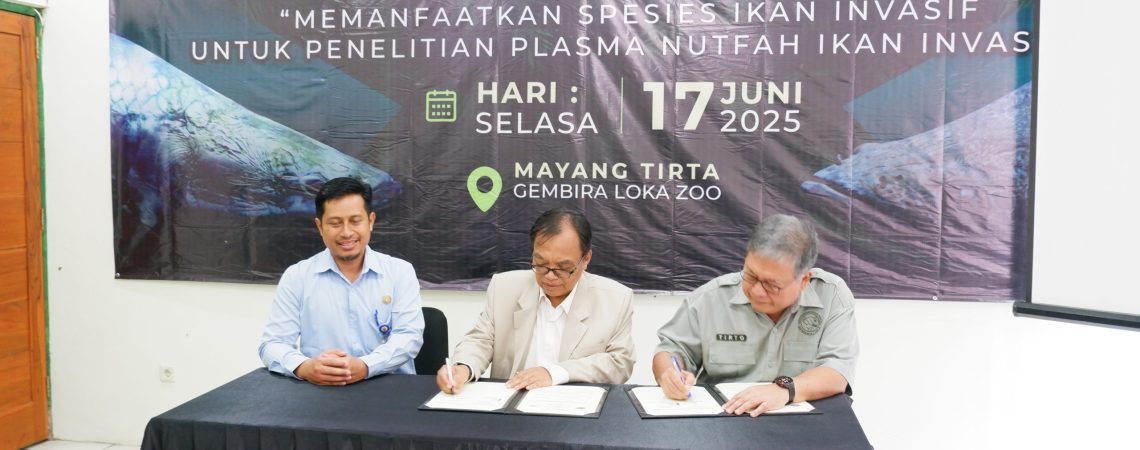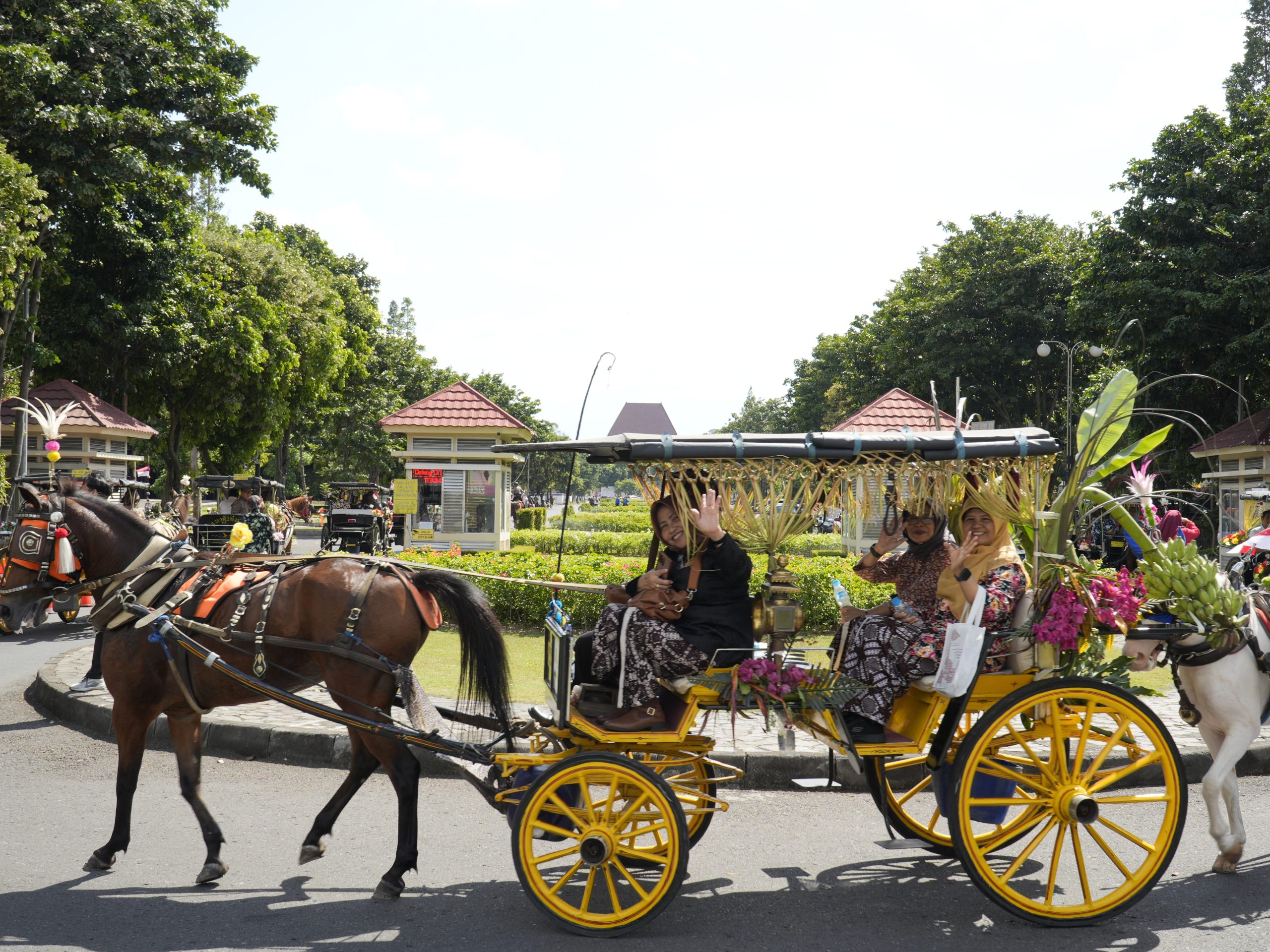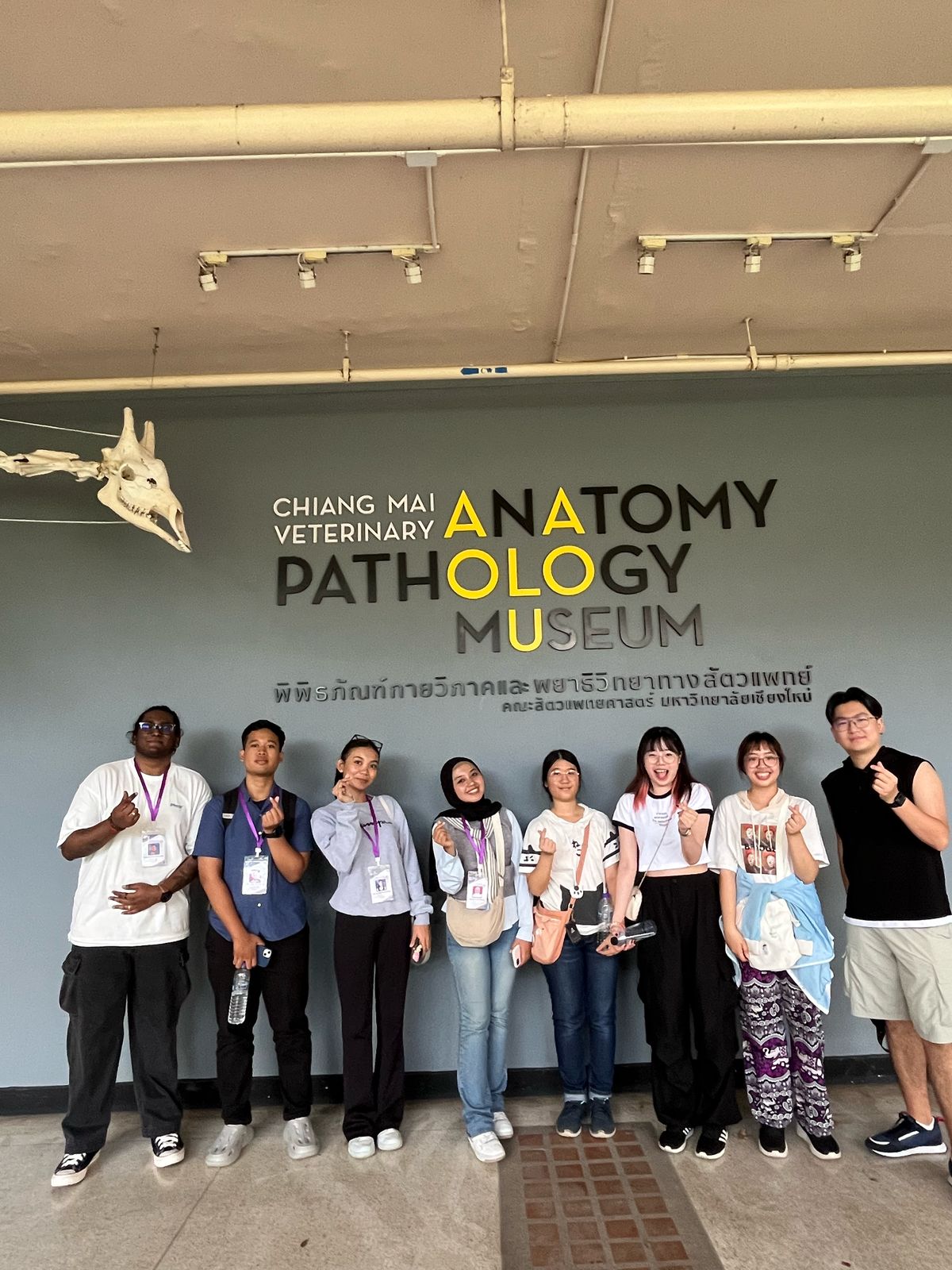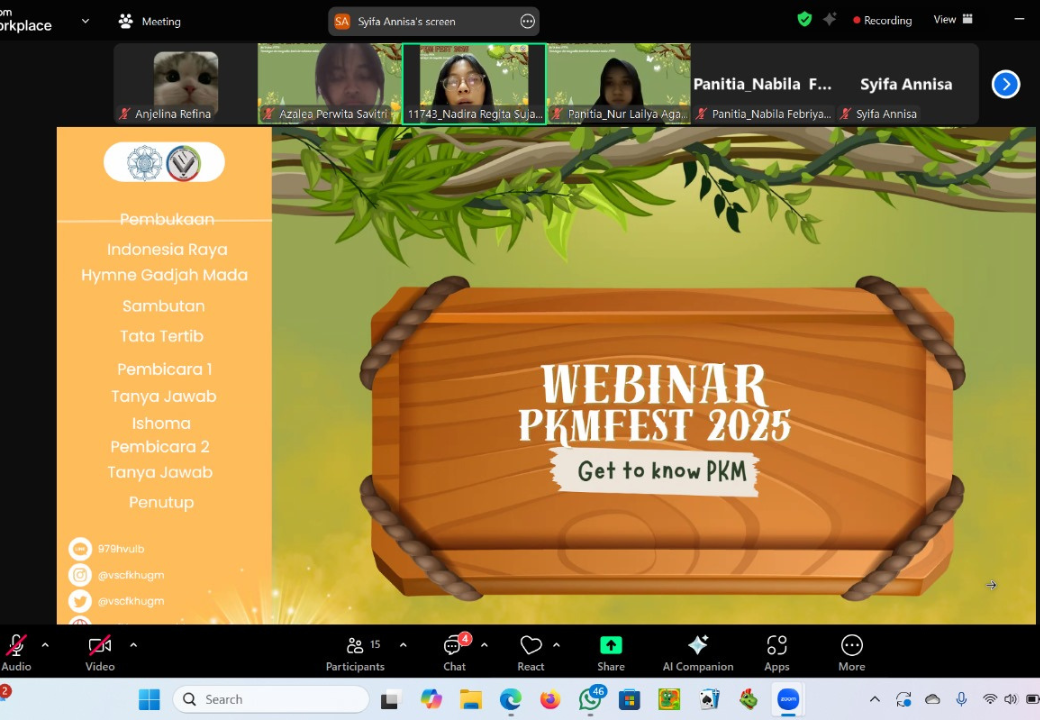Yogyakarta, Tuesday (17/6) — The Faculty of Veterinary Medicine Universitas Gadjah Mada (FoVM UGM) officially signed a collaborative agreement with Gembira Loka Zoo (GL Zoo) to strengthen joint efforts in research, education, and animal conservation. The signing ceremony took place at the Mayang Tirta Room, Gembira Loka Zoo, Yogyakarta (SDGs 4: Quality Education, SDGs 17: Partnerships for the goals).
This partnership focuses on the use of invasive fish species—such as Arapaima, Alligator Gar, Piranha, Redtail Catfish, Snakehead, and Nile Tilapia—and ostriches (Struthio camelus) as educational and research subjects. These species, though non-native to Indonesia, are considered valuable for scientific study and learning in veterinary education. Dean of FoVM UGM, Prof. Teguh Budipitojo, DVM., M.P., Ph.D., emphasized that the collaboration serves as crucial exposure for veterinary students to learn about biodiversity, including non-native and endemic species. One of the primary goals of this initiative is to utilize invasive fish species in germplasm research, which includes both native and non-native fish that have aggressively colonized specific habitats. These species can pose significant ecological, economic, and social threats if left unmanaged (SDGs 14: Life Below Water).
Additionally, ostriches, large flightless birds originating from Africa, are being used for research and teaching purposes. Prof. Teguh noted that ostriches hold strategic scientific value in the field of veterinary science, particularly in avian studies, and their inclusion in research contributes to the conservation of biological diversity (SDGs 15: Life on Land).
Director of GL Zoo, KMT A. Tirtodiprojo, stated that the institution has maintained a long-standing relationship with FoVM UGM. However, this collaboration marks a new chapter focusing specifically on research and education around invasive species. According to him, invasive fishes present serious ecological and social challenges that require attention from academia (SDGs 4: Quality Education, SDGs 17: Partnerships for the goals).
Further support comes from the Department of Fisheries and Marine Affairs of the Special Region of Yogyakarta. Representing the department, Fitrianto Noorcahyo expressed that a separate collaboration with FoVM UGM is being planned to support educational programs utilizing invasive fish species. He noted that Yogyakarta is currently leading in invasive species monitoring in Indonesia, and partnerships like this are vital to enhancing surveillance efforts and raising public awareness about the dangers posed by invasive species. The event concluded with a site visit to observe the ostrich and tiger breeding facilities at the zoo (SDGs 4: Quality Education, SDGs 13: Climate Action, SDGs 17: Partnerships for the goals).





